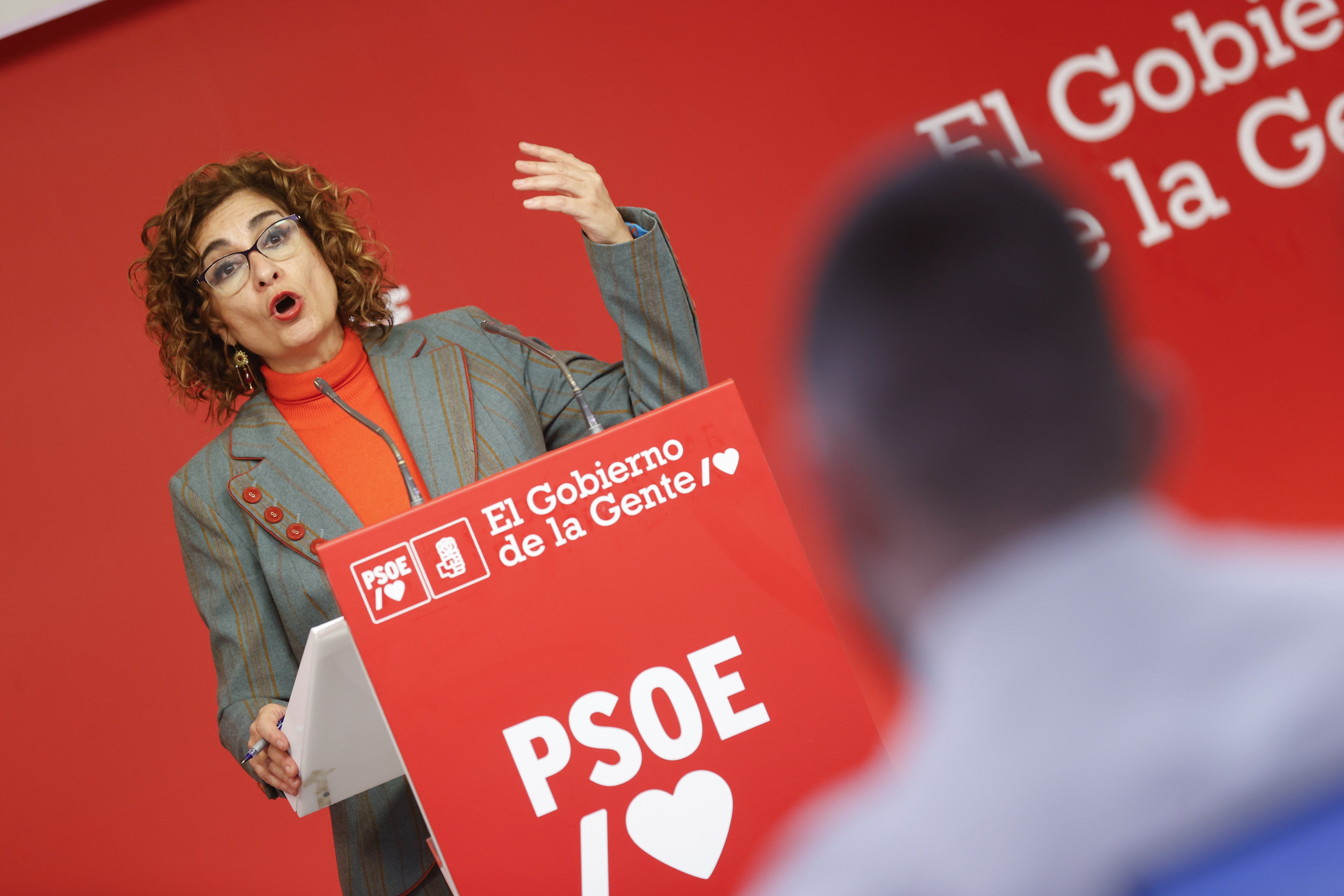The Spanish treasury minister and deputy general secretary of the PSOE, María Jesús Montero, did not want to assess the decree issued by the Supreme Court judge Pablo Llarena updating the charges against the Catalan president in exile, Carles Puigdemont, to alleged crimes of disobedience and aggravated misuse of funds. However, in a press appearance following meetings of her party executive and the PSOE ministers of the Spanish government, Montero asked the investigating judge publicly not to get involved in politics and to limit his activity to the field of justice. "We don't venture into judicial pronouncements and, in the same way, we always ask that [the judiciary] doesn't enter into the legitimacy that the political field has to develop its legislation", replied the minister, adding that "what justice has to do is administer justice, and politicians, to legislate according to their scale of values."
Montero rejects assertion of "decriminalization of process"
As well, the minister rejected the assertion made by the investigating judge that the reform of the Spanish Penal Code has led to a situation close to the "decriminalization" of the independence process. In this regard, Montero asserted that, contrary to what the opposition People's Party (PP) claims, president Puigdemont will not return to be greeted on "a red carpet", but rather, precisely, the repeal of the sedition law will allow him to be extradited so that he "answers to justice for the very serious events that happened a few years ago". Llarena ruled in the resolution that neither the crime of "public disorder", nor the new "aggravated" version introduced with the Penal Code reform match the events of the 1st October referendum, but now public prosecutors are studying whether they could accuse Puigdemont of "aggravated public disorder".
In any case, Montero has defended the reform of the crime of misuse of public funds and emphasized that it "toughens the definitions of crimes with regard to corruption" with the creation of the new offence of illicit enrichment, which makes it possible to distinguish between those who "enrich themselves personally" and those that "don't allocate public resources to the originally intended purpose". "Both have criminal charges, but the severity of the penalties [for the two] cannot be standardized," she said. However, when asked to confirm that the reform would not involve the reduction of penalties for people convicted in corruption cases, the minister could not guarantee this.
On the other hand, the Treasury minister affirmed that president Puigdemont's criticism of the reform of the Penal Code "discredits" the accusations made by the PP asserting that he will return with impunity. In addition, PSOE sources have told the Europa Press agency that Puigdemont's criticism of the pro-independence ERC for having supported the penal reform is further confirmation that "the process is over".
Judge Llarena attacks law reform in his decree document
In the decree issued on Thursday in relation to the accusations against the exiled pro-independence politicians, judge Pablo Llarena devoted considerable space to criticising the law reform carried out by the Pedro Sánchez government under which the crime of sedition has been repealed. In his updating of the charges, the judge not only draws conclusions on the applicability of the new law which are different to those declared by the legislators involved - continuing to apply the maximum penalty for misuse of funds to Carles Puigdemont - but also bluntly attacks the arguments put forward to introduce these changes to the Penal Code. Llarena attributes the reform of the law, agreed by the PSOE, Podemos and ERC, to a "marked discrepancy" with the judgment of the trial court and rejects that it is based on formal issues or proportionality, or the need to guarantee fundamental rights and freedoms which has been asserted by international human rights forums, among others. The judge denounces that the legislators have created a context in which those accused of sedition have been "decriminalized" over the events surrounding the referendum of 1st October 2017.

